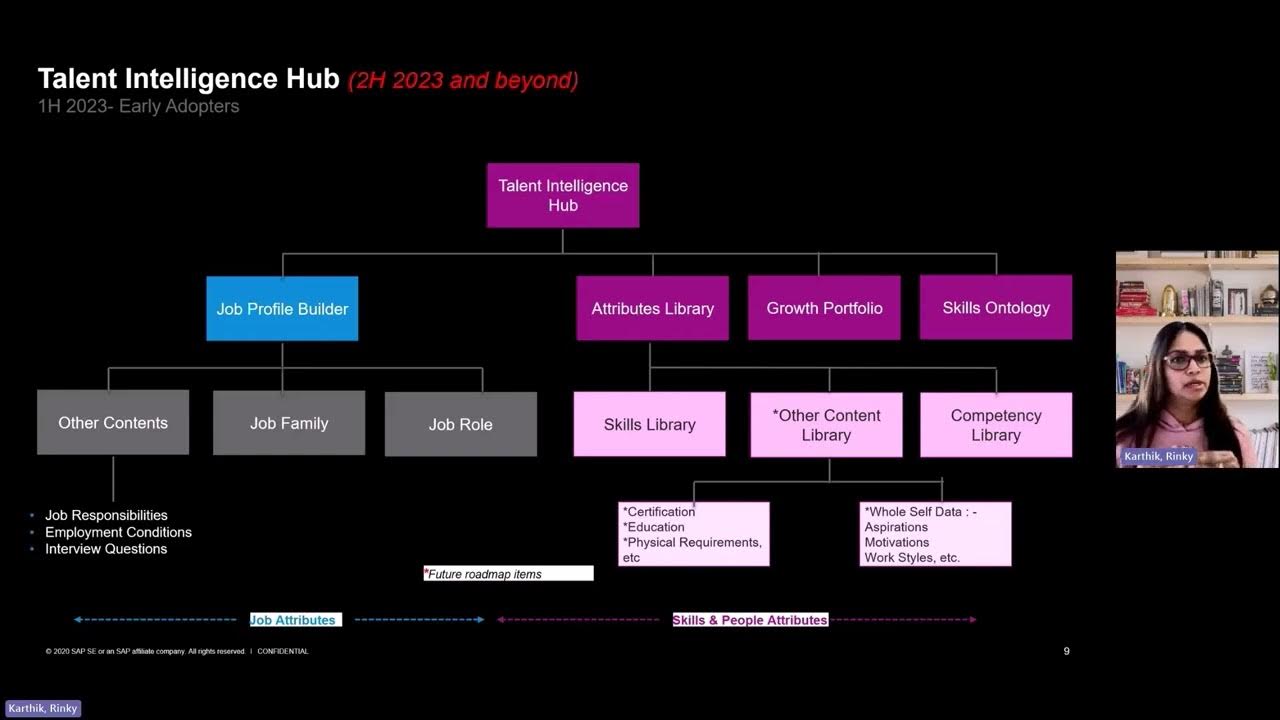Konsep Bakat & Tes
Summary
TLDRThis video script explores the concept of talent (bakat) and its relationship with intelligence (inteligensi). It discusses the definition and theories of talent, highlighting how it is an innate ability that can be developed through training and stimulation. The script distinguishes talent from intelligence, noting that intelligence is a broader foundation for learning, while talent refers to specialized skills. It also covers different theories on talent development, the importance of external and internal factors, and the evolution of talent tests. The video delves into both the psychological and practical aspects of identifying and nurturing talent across various fields.
Takeaways
- 😀 Talent and intelligence are closely related, but they are distinct concepts: intelligence is a broader cognitive ability, while talent refers to specific abilities that can be developed.
- 😀 Talent is an inherent ability, but it requires practice and development to become a skill that can be fully realized in specific areas, such as music or sports.
- 😀 Intelligence is considered a general factor (G-factor) in theories like Spearman's, whereas talent is seen as a more specialized ability in certain domains.
- 😀 According to various experts, talent is a combination of natural abilities and learned skills. It can be nurtured through focused training and effort.
- 😀 The development of talent is influenced by both internal factors (e.g., motivation, interest) and external factors (e.g., environment, opportunities).
- 😀 Theories such as Vernon’s Hierarchical Group Theory categorize talent into major and minor groups like verbal/educational and practical/mechanical, showing its complexity.
- 😀 Talent identification can be approached through psychometric tests (measuring specific abilities), behavioral observation (looking at early development and performance), and sociometric methods (focusing on social interaction and behavior).
- 😀 Psychometric approaches to identifying talent involve the use of intelligence and achievement tests, focusing on reliability and validity in measuring an individual’s potential.
- 😀 Talent tests can either be single-dimension (measuring one skill) or multi-dimension (assessing multiple abilities). They are specifically designed to gauge individual strengths in particular areas.
- 😀 The relationship between talent and achievement is not automatic; individuals with talent may not always reach high levels of achievement without additional factors like support, environment, and motivation.
- 😀 Historical examples such as Beethoven in music or Susi Susanti in badminton highlight how talent can lead to extraordinary achievements, but also emphasize the need for dedication and external support in reaching the peak of one’s potential.
Q & A
What is the main topic of the current discussion in the transcript?
-The main topic of the discussion is the concept of talent, its relationship with intelligence, and how talent is identified and developed.
How are talent and intelligence related, according to the transcript?
-Talent and intelligence are interrelated but distinct. Intelligence is seen as the foundation upon which talent develops. While intelligence is a general factor, talent is considered more specific and can be nurtured through training.
What are some examples of individuals known for their talents in the transcript?
-Examples include artists like Leonardo da Vinci, Basuki Abdullah, and Affandi, musicians like Beethoven and Mozart, and athletes like Susi Susanti, Rudi Hartono, and Taufik Hidayat.
How is talent defined by various experts in the transcript?
-Talent is defined as an innate capacity that can be developed through training and practice. Experts like Frank S. Freeman define it as a combination of characteristics in specific fields, while Alex Sobur defines it as natural abilities in certain areas.
What is the difference between talent and ability as discussed in the transcript?
-Talent is an innate gift, while ability is the combination of talent and training. Talent requires practice to develop into a full capability.
What factors influence the realization of talent, as mentioned in the transcript?
-Two main factors influence talent realization: external factors such as learning opportunities, resources, and social support, and internal factors such as personal interest and motivation.
What is the theory of talent presented by Vernon in the transcript?
-Vernon's theory of talent is a hierarchical model, where general intelligence (g-factor) is at the top, followed by two major groups: verbal education and practical mechanical skills. These groups are further subdivided into minor and specific factors.
How does psychometry relate to talent identification?
-Psychometry is a technique used to measure psychological traits through tests. It focuses on the validity and reliability of these tests when identifying talent, using various assessments like intelligence and achievement tests.
What is the significance of talent tests as described in the transcript?
-Talent tests are specialized assessments designed to measure specific abilities, unlike general intelligence tests. These tests help identify an individual's potential in particular areas, such as music, sports, or language.
What historical event led to the development of talent tests, according to the transcript?
-The development of talent tests was accelerated during World War II, where there was a need to select pilots, engineers, and navigators for the military. This led to the creation of specific talent tests to identify suitable candidates for these roles.
Outlines

This section is available to paid users only. Please upgrade to access this part.
Upgrade NowMindmap

This section is available to paid users only. Please upgrade to access this part.
Upgrade NowKeywords

This section is available to paid users only. Please upgrade to access this part.
Upgrade NowHighlights

This section is available to paid users only. Please upgrade to access this part.
Upgrade NowTranscripts

This section is available to paid users only. Please upgrade to access this part.
Upgrade NowBrowse More Related Video

MENENTUKAN SEKOLAH DULU ATAU KARIER DULU? | Parenting Class QEP #QEPpodcast

Élisabeth Louise Vigée Le Brun: la pittrice di Maria Antonietta

Part 1 Evolution of Talent Intelligence Hub & Upgrade Strategy

【海外の反応】「本当に同じ惑星の人たちなの?」奈良公園で中国人のトラブル大量発生!温厚な鹿が中国人にだけ寄り付かない理由とは

Daniel Goleman: The 4 domains of emotional intelligence | Daniel Goleman for Big Think+

Olahraga dan Artificial Intelligence SPORTS AI
5.0 / 5 (0 votes)